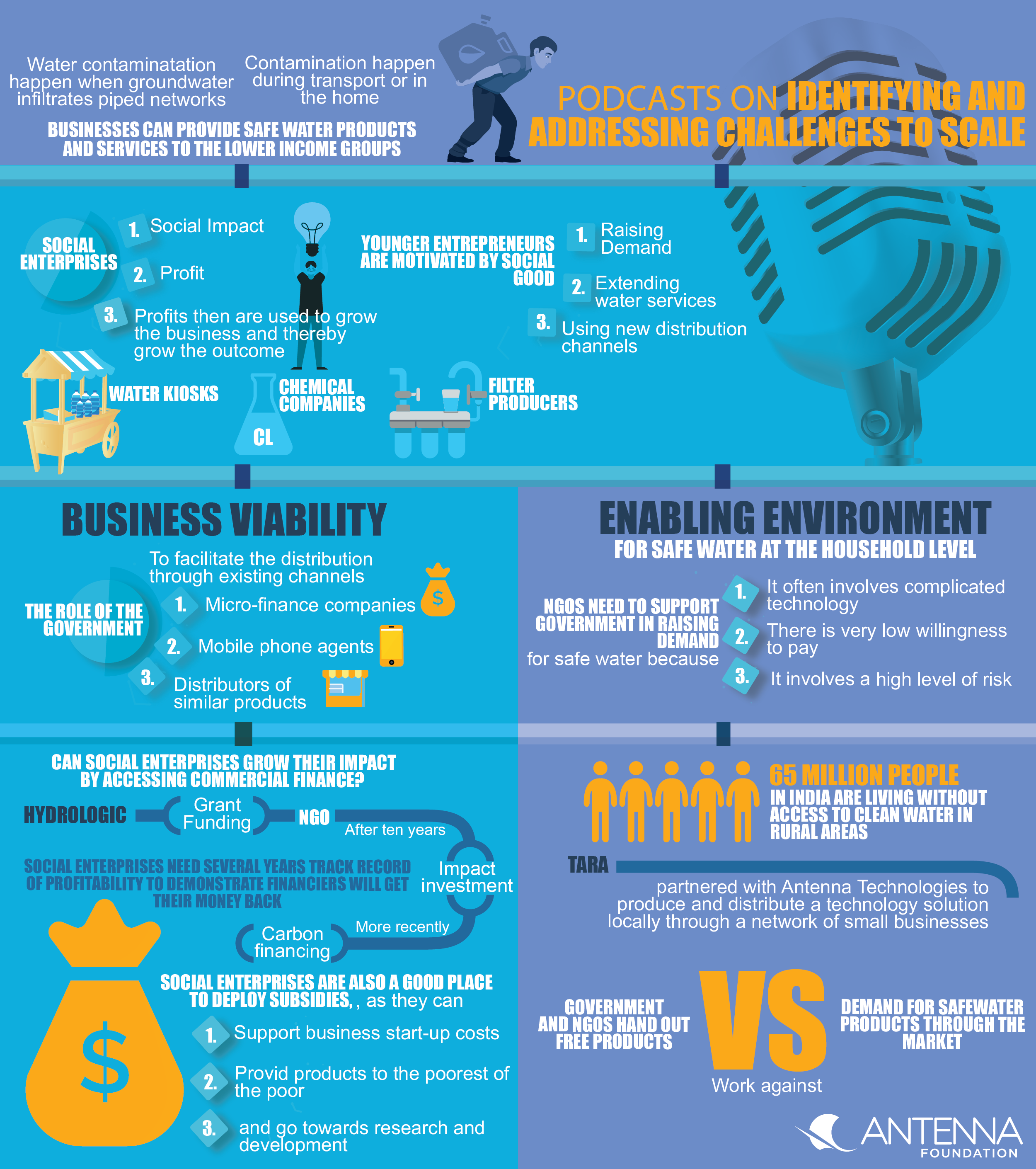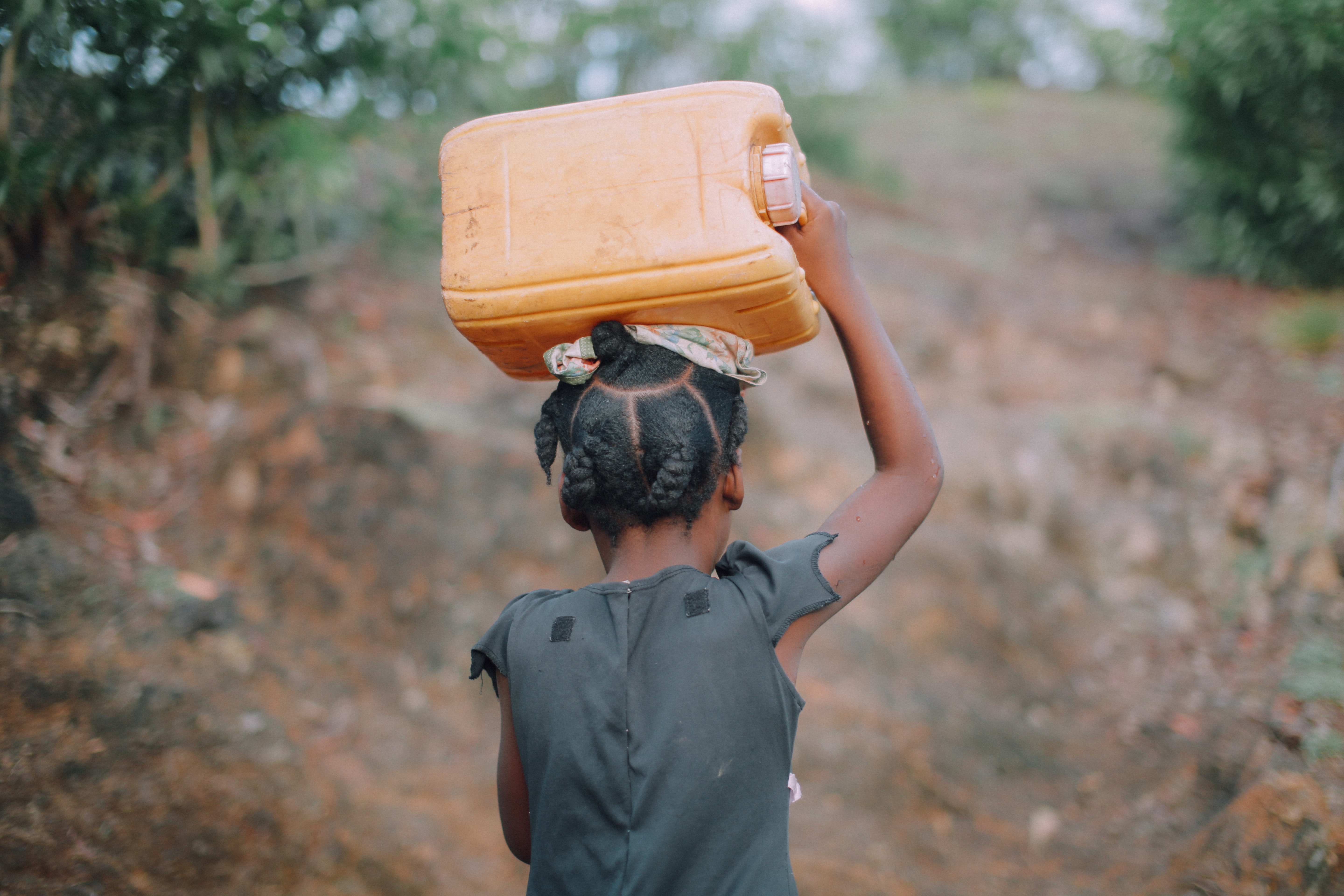Executive Summary

This factsheet provides you with hands-on insights and lessons learnt on how to scale safe water enterprises serving the BoP. Listen to our podcasts and get inspired.
Business viability
How to make safe water businesses viable? Listen to lessons learnt from Rachel Pringle and Sjef Earnes in scaling safe water enterprises serving the BoP.
While governments have the responsibility to provide safe water to its citizens, when there is insufficient quality supply the responsibility of safe water falls on the household, who must treat it, or buy it.
Social enterprises can distribute safe water and household water filters to lower income groups, often referred to as the base of the pyramid (BoP), and development finance can be used to subsidise their business. Rachel Pringle, CEO of the Cambodian social enterprise Hydrologic, and Sjef Ernes, Managing Director of the Netherlands-based non-profit Aqua for All talk to host Andy Narracott about their lessons learnt in developing viable BoP business models around safe water.
Listen to our podcast here!
Enabling Environment for safe water at the household level
Households are lacking access to water. Listen to Fanny Boulloud and Kanika Verma about the role of government in supporting the private sector to enable adequate water quality at the point of consumption.
Governments have the responsibility to provide safe water to its citizens. This is embodied in the human rights to water and sanitation. But in many areas, governments are unable to keep up with the expanding populations, maintenance of existing water supply systems and the required monitoring to effectively manage them. Even when they do, water can get contaminated during transport and storage. Treatment at point of use is essential, then, to prevent diarrhoeal diseases. Whilst universal service by government is the goal, social entrepreneurs can play an important role in building and meeting demand for safe water for underserved households in the medium term. Water can be delivered to households. And filtration and chlorination products can be sold to enable households to do the treatment themselves. But the landscape on options and their suitability in different contexts is a minefield for governments and the private sector to understand.
Listen to our podcast here!
Subscribe here to the new Sanitation and Water Entrepreneurship Pact (SWEP) newsletter. SWEP is a network of organizations joining hands to help entrepreneurs design and develop lasting water and sanitation businesses.


